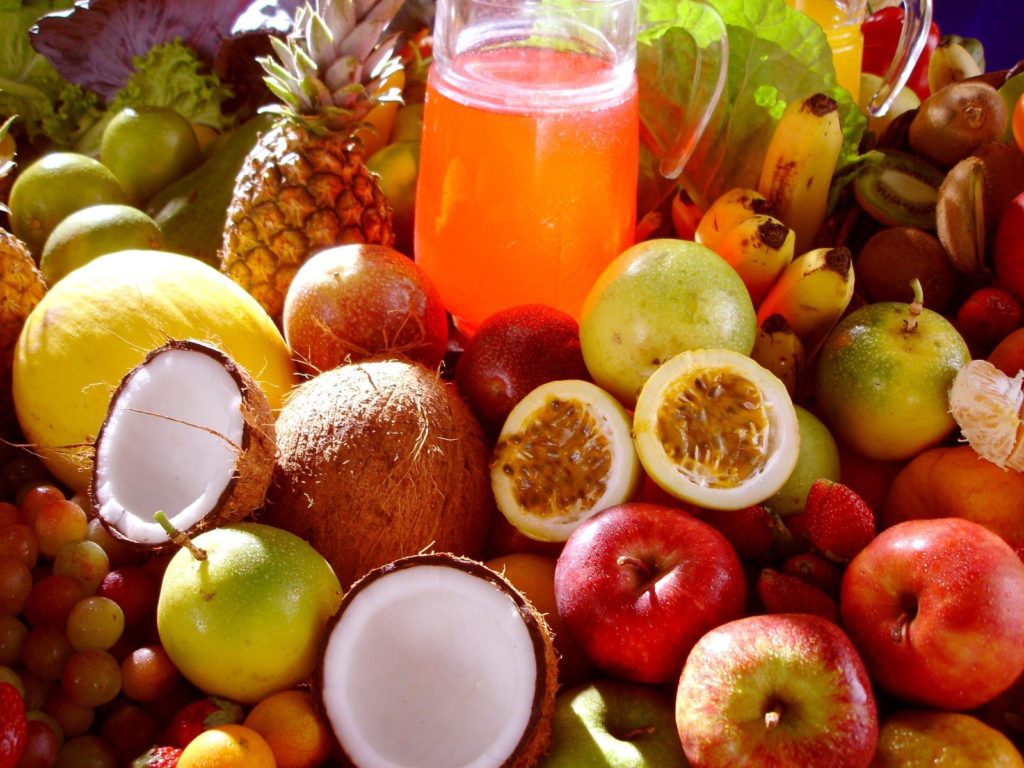Juicing has become a popular trend in recent years largely due to the high content of vitamins and minerals that can be enjoyed on the go.
There is some important information to take into consideration when trying to maximize the health benefits. For at-risk individuals, including the sick, elderly, or infants, it is important to remember that any bacteria on the surface can quickly contaminate the juice. According to eatright.org, individuals with compromised immune systems should boil any unpasteurized juice in order to kill the potentially harmful bacteria. However, juicing at home can be a safer, more frugal option when practicing food safety rules: “…clean everything, including all fruits, vegetables, cutting boards, knives, blenders, juicing machines, and glasses. Even if you’re not using the peels, clean them anyway. Bacteria on the outside of the fruits and vegetables can contaminate the inside when cut and juiced. Even if you follow all safety habits, fresh juice can still pose a risk for food poisoning in high-risk individuals.” (1) Remember not to make more than you can drink in order to refrain from storing extra, as bacteria can quickly spread when the juice is not fresh.
Now–Let’s take a moment to think about our bodies. The human body is an amazing compilation of systems and food is our fuel. The nutrients we put into our body can affect much more than weight and hunger. Studies show a direct link between nutrition overall health, including, but not limited to depression, anxiety, cardiovascular disease, and cancer. “Nutrition therapy is used to help cancer patients keep a healthy body weight, maintain strength, keep body tissue healthy, and decrease side effects both during and after treatment.”(2) Chris Wark, a colon cancer survivor, is a prime example of utilizing nutritional support for wellness. His website, chrisbeatcancer.com, shares his motivational journey and is an exploration of nutrition, resources, and many other survivor stories, including Kay’s. Read Kay’s story about she included juicing in her journey toward wellness after her pancreatic cancer diagnosis. https://www.chrisbeatcancer.com/kay-healing-pancreatic-cancer-naturally-after-treatment-failed/
There are often questions on whether juicing is healthier than eating raw fruits and vegetables, however, arguments can go either way. It is important to take into consideration the need of the individual. We frequently hear from our pancreatic cancer patients that they experience loss of appetite and/or lose the ability to keep food down making juicing a potential solution. “Juicing extracts the juice from fresh fruits or vegetables. The resulting liquid contains most of the vitamins, minerals and plant chemicals (phytonutrients) found in the whole fruit.” (3) Juicing is not intended to be a miracle treatment, but rather a potential solution to support the human body by providing it with nutrients needed to survive.
For more information on juicing and nutrition:
https://www.ncbi.nlm.nih.gov/pubmed/28338764
https://www.health.harvard.edu/blog/diet-and-depression-2018022213309
Juicing recipes
https://www.cancercenter.com/patient-stories/chrisp
https://beatcancer.org/blog-posts/alkaline-foods-can-help-fight-pancreatic-cancer
To learn about Gerson therapy: https://gerson.org/gerpress/the-gerson-therapy/
Sources:
- https://www.eatright.org/homefoodsafety/safety-tips/food/the-juicing-trend-about-raw-juice
- https://www.cancer.gov/about-cancer/treatment/side-effects/appetite-loss/nutrition-pdq
- https://www.mayoclinic.org/healthy-lifestyle/nutrition-and-healthy-eating/expert-answers/juicing/faq-20058020




